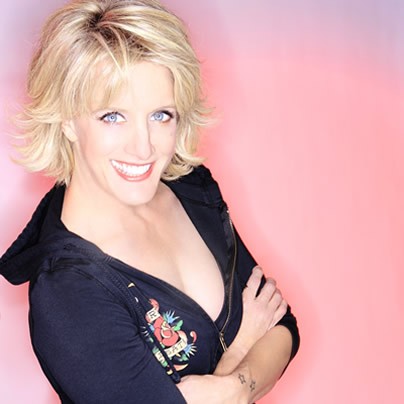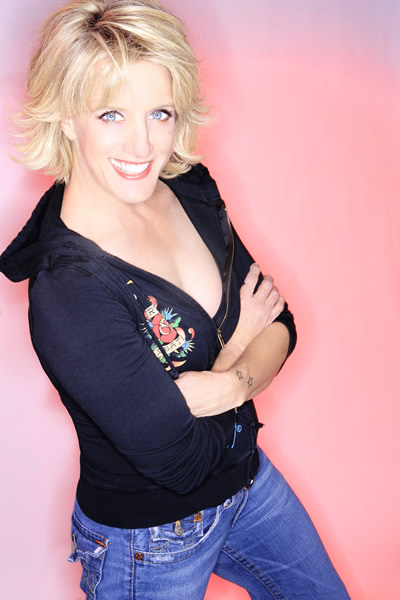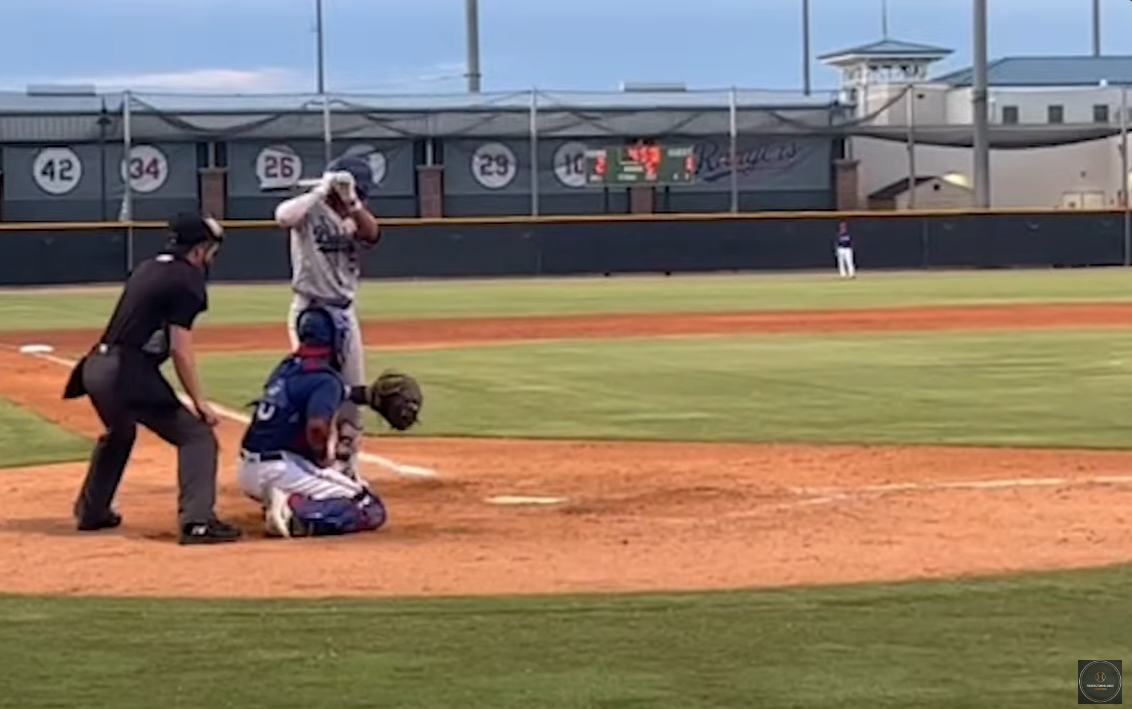Arts & Entertainment
Laughing all the way
Westenhoefer on her divorce, Birchmere return and Jodie Foster


Suzanne Westenhoefer (Photo by Adam Bouska)
For one of her first shows this year, comedian Suzanne Westenhoefer cannot assure her audience she will stick to a certain theme or what kind of jokes she will make. She doesn’t even have a name for her current tour.
However, she does promise that straight or gay, boy or girl, attendees will laugh.
Westenhoefer comes to the Birchmere (3701 Mount Vernon Ave., Alexandria) Friday night, bringing with her personal stories that audiences can relate to and laugh about.
“Because the act I do is very truthful, very personal, my show is changing hourly,” she says. “If something changes in my life that makes the story not true, the show changes. It’s not like a written script.”
The blend of honesty and often self-deprecating humor is what brings audiences back year after year, says Michael Jaworek, Birchmere promoter, who has been booking Westenhoefer for more than 15 years.
“Her audience is very devoted and follows her,” he says. “She is funny. Her humor is insightful. A lot of her material deals with gay life, or rather lesbian life. She speaks to and for the majority of her audience.”
Suzanne Westenhoefer
February 1
The Birchmere
3701 Mount Vernon Ave.
Alexandria, Va
Tickets are $54.50
Westenhoefer does know that a bulk of her show will deal with recovering from divorce and entering the dating world for the first time in years. Through this process, she’s learned a few new things about herself.
“I suck at dating,” she says. “I don’t date, I don’t know how.”
A little less than a year ago, Westenhoefer divorced long-term partner Jennifer Houston, whom she married in 2008 before Proposition 8 was voted on in California. Through the transition, she’s learned a lot of new things about herself.
“I thought I would be fine, apparently not,” she says. “I didn’t know how to feed myself. I hadn’t cooked for myself since I moved in with my first partner when I was 21.”
But she says despite the bumps and challenges in her new life, there are so many great and new people to meet and that everyone should “go out, be nice, buy someone a cocktail and meet somebody.” She’s currently exclusively seeing a woman whom she calls “tall girl” in order to respect her privacy.
The stage to Westenhoefer is an open diary, and even when the story is tragic in nature, she always tries to make it comedic.
“I see what everybody is thinking, what needs to be said,” she says. “I’m getting everybody off the hook by saying it. I’m giving them a chance to laugh at tragedy that befalls them all.”
Growing up in the heart of Amish country in Pennsylvania, and coming out right when the AIDS crisis was starting in 1981, Westenhoefer has had plenty of stories to tell. But the act of sharing her personal narrative has its roots in something deeper and older.
“My grandfather was the same way,” she says. “He was that kind of person who goes to the store to get milk and bread, come back and have a fantastic funny story about it.”
On stage, Westenhoefer is not afraid to say whatever is on her mind.
“Once my sister told me she thinks she might be gay, but asked me not to tell anybody,” she says. “What did I do? I went right on stage and said ‘So, my sister thinks she’s gay.’”
This has not gotten her in trouble with her family so far, she claims, because they know it is “out of love.”
Westenhoefer began her stand-up career at the end of 1990, when a friend dared her to go on stage while she was working as a New York bartender. However, she did not need anyone to dare her to be honest and talk about gay life.
“My opening line was I am the only gay comedian you’re going to see tonight,” she says.
Though her first time on stage didn’t go well (by her own admission), her career took off through the ‘90s. In 1991, she became the first lesbian comic to appear on television, when she was on an episode of “Sally Jessy Raphael” called “Breaking the Lesbian Stereotype: Lesbians Who Don’t Look Like Lesbians,” and then went on to be the first openly gay comic to host an HBO Comedy Special in 1994.
Being on television created an opportunity to start a conversation, she says.
“It was a way to tell people not to panic, we aren’t killing babies,” Westenhoefer says. “This has always been and always will be.”
This is not the first time Westenhoefer has been a force for change. She says in high school she formed a group to ban dodge ball. She says activism is in her blood and that she and her family always were political
While still blunt and honest with her audience, Westenhoefer says things have certainly changed since she began. Westenhoefer no longer uses her original opening line.
“I used to do shows in straight clubs and I literally would say I was lesbian in the beginning of every show,” she says. “It’s definitely gotten to be a different show. It doesn’t have to be gay gay gay gay.”
Recent events, such as Jodie Foster’s speech at the Golden Globes and Barack Obama’s speech at his second inauguration, she says mark the change in attitudes toward the LGBT community.
When she came out at 19, Westenhoefer says it was a scarier time period. There was more violence against the community. However, most of her friends and family were supportive.
Now she finds it amazing that people like Foster can go on international television and discuss their sexuality with the world.
“I am very excited for her,” Westenhoefer, who’s met Foster three times, says. “She is a very shy, very private woman. I am very proud of her. To get up in front of an international audience and tell this, it’s amazing.”
Despite leaving the much warmer West Coast to do so, Westenhoefer says she’s always glad to return to the D.C. area.
“I love D.C. for several reasons,” she says. “First of all people will come out for a show even if there is an ice storm. They have southern hospitality, they are political and they want to be entertained. It is the perfect storm for comedy.”
Jaworek is happy to have her back because, “Suzanne is a very funny woman period.”
Even though she shares the experiences of a lesbian, Westenhoefer insists that, “the boys are welcome. It is not just for girls. It’s a show for straights, for gays, and if they wanna come, I promise they’ll laugh.”
Sports
Bisexual former umpire sues Major League Baseball for sexual harassment
Brandon Cooper claims female colleague sexually harassed him

A fired former umpire is suing Major League Baseball, claiming he was sexually harassed by a female umpire and discriminated against because of his gender and his sexual orientation.
Brandon Cooper worked in the minor league Arizona Complex League last year, and according to the lawsuit he filed Wednesday in federal court in Manhattan, he identifies as bisexual.
“I wanted my umpiring and ability to speak for itself and not to be labeled as ‘Brandon Cooper the bisexual umpire,’” he told Outsports. “I didn’t want to be labeled as something. It has been a passion of mine to simply make it to the Major Leagues.”
But that didn’t happen. Instead of being promoted, he was fired. His suit names MLB and an affiliated entity, PDL Blue, Inc., and alleges he had endured a hostile work environment and wrongful termination and/or retaliation because of gender and sexual orientation under New York State and New York City law.
“Historically the MLB has had a homogenous roster of umpires working in both the minor and major leagues,” Cooper claims in his suit. “Specifically, to date there has never been a woman who has worked in a (regular) season game played in the majors, and most umpires are still Caucasian men. To try to fix its gender and racial diversity issue, defendants have implemented an illegal diversity quota requiring that women be promoted regardless of merit.”
Cooper claims former umpire Ed Rapuano, now an umpire evaluator, and Darren Spagnardi, an umpire development supervisor, told him in January 2023 that MLB had a hiring quota, requiring that at least two women be among 10 new hires.
According to the suit, Cooper was assigned to spring training last year and was notified by the senior manager of umpire administration, Dusty Dellinger, that even though he received a high rating in June from former big league umpire Jim Reynolds, now an umpire supervisor, that women and minority candidates had to be hired first.
Cooper claims that upon learning Cooper was bisexual, fellow umpire Gina Quartararo insulted him and fellow umpire Kevin Bruno by using homophobic slurs and crude remarks. At that time, Quartararo and Cooper worked on the same umpiring crew and being evaluated for possible promotion to the big leagues.
This season, Quartararo is working as an umpire in the Florida State League, one of nine women who are working as minor league umpires.
Cooper said he notified Dellinger, but instead of taking action against Quartararo, he said MLB ordered Cooper to undergo sensitivity training. According to his lawsuit, he was also accused of violating the minor league anti-discrimination and harassment policy.
Cooper’s suit says he met with MLB Senior Vice President of Diversity, Equity and Inclusion Billy Bean — who the Los Angeles Blade reported in December is battling cancer.
The lawsuit says at that meeting, Bean told the umpire that Quartararo claimed she was the victim, as the only female umpire in the ACL. Cooper said he told Bean Quartararo regularly used homophobic slurs and at one point physically shoved him. He also claims that he has video evidence, texts and emails to prove his claim.
But he said his complaints to Major League Baseball officials were ignored. His lawsuit said MLB passed him over for the playoffs and fired him in October. He said of the 26 umpires hired with Cooper, he was the only one let go.
Through a spokesperson, MLB declined to comment on pending litigation. Quartararo has also not publicly commented on the lawsuit.
a&e features
Eastern Shore chef named James Beard Finalist
Harley Peet creates inventive food in an inclusive space

In a small Eastern Shore town filled with boutiques, galleries, and the occasional cry of waterfowl from the Chesapeake, Chef Harley Peet is most at home. In his Viennese-inflected, Maryland-sourced fine-dining destination Bas Rouge, Peet draws from his Northern Michigan upbringing, Culinary Institute of America education, and identity as a gay man, for inspiration.
And recently, Peet was named a James Beard Finalist for Best Chef: Mid-Atlantic – the first “Best Chef: Mid-Atlantic” finalist representing the Eastern Shore.
Peet, after graduation from the Culinary Institute of America, took a position as sous chef at Tilghman Island Inn, not far from Bas Rouge. Falling in love with the Eastern Shore, he continued his passion for racing sailboats, boating, gardening, and fishing, and living his somewhat pastoral life as he opened Bas Rouge in 2016 as head chef, a restaurant part of the Bluepoint Hospitality group, which runs more than a dozen concepts in and around Easton, Md.
Coming from a rural area and being gay, Peet knew he had his work cut out for him. He was always aware that the service and hospitality industry “can be down and dirty and rough.”
Now as a leader in the kitchen, he aims to “set a good example, and treat people how I want to be treated. I also want to make sure if you’re at our establishment, I’m the first to stand up and say something.”
The Bas Rouge cuisine, he says, is Contemporary European. “I’m inspired by old-world techniques of countries like Austria, Germany, and France, but I love putting a new spin on classic dishes and finding innovative ways to incorporate the bounty of local Chesapeake ingredients.”
His proudest dish: the humble-yet-elevated Wiener Schnitzel. “It is authentic to what one would expect to find in Vienna, down to the Lingonberries.” From his in-house bakery, Peet dries and grinds the housemade Kaiser-Semmel bread to use as the breadcrumbs.
Peet works to support the LGBTQ community inside and outside of the kitchen. “I love that our Bluepoint Hospitality team has created welcoming spaces where our patrons feel comfortable dining at each of our establishments. Our staff have a genuine respect for one another and work together free of judgment.”
Representing Bluepoint, Peet has participated in events like Chefs for Equality with the Human Rights Campaign, advocating for LGBTQ rights.
At Bas Rouge, Peet brings together his passion for inclusion steeped in a sustainability ethic. He sees environmental stewardship as a way of life. Peet and his husband have lived and worked on their own organic farm for several years. Through research in Europe, he learned about international marine sourcing. Witnessing the impacts of overfishing, Peet considers his own role in promoting eco-friendly practices at Bas Rouge. To that end, he ensures responsible sourcing commitments through his purveyors, relationships that have helped create significant change in how people dine in Easton.
“I have built great relationships in the community and there’s nothing better than one of our long-standing purveyors stopping in with a cooler of fresh fish from the Chesapeake Bay. This goes especially for catching and plating the invasive blue catfish species, which helps control the species’ threat to the local ecosystem.
Through his kitchen exploits, Peet expressed a unique connection to another gay icon in a rural fine-dining restaurant: Patrick O’Connell, of three Michelin starred Inn at Little Washington. In fact, Peet’s husband helped design some of O’Connell’s kitchen spaces. They’ve both been able to navigate treacherous restaurant-industry waters, and have come out triumphant and celebrated. Of O’Connell, Peet says that he “sees [his restaurants] as canvas, all artistry, he sees this as every night is a show.” But at the same time, his “judgment-free space makes him a role model.”
Being in Easton itself is not without challenges. Sourcing is a challenge, having to either fly or ship in ingredients, whereas urban restaurants have the benefit of trucking, he says. The small town “is romantic and charming,” but logistics are difficult – one of the reasons that Peet ensures his team is diverse, building in different viewpoints, and also “making things a hell of a lot more fun.”
Reflecting on challenges and finding (and creating) space on the Eastern Shore, Peet confirmed how important it was to surround himself with people who set a good example, and “if you don’t like the way something is going … move on.”

Team DC, the umbrella organization for LGBTQ-friendly sports teams and leagues in the D.C. area, held its annual Night of Champions Awards Gala on Saturday, April 20 at the Hilton National Mall. The organization gave out scholarships to area LGBTQ student athletes as well as awards to the Different Drummers, Kelly Laczko of Duplex Diner, Stacy Smith of the Edmund Burke School, Bryan Frank of Triout, JC Adams of DCG Basketball and the DC Gay Flag Football League.
(Washington Blade photos by Michael Key)



















-

 State Department3 days ago
State Department3 days agoState Department releases annual human rights report
-

 Maryland5 days ago
Maryland5 days agoJoe Vogel campaign holds ‘Big Gay Canvass Kickoff’
-

 Politics4 days ago
Politics4 days agoSmithsonian staff concerned about future of LGBTQ programming amid GOP scrutiny
-

 District of Columbia1 day ago
District of Columbia1 day agoCatching up with the asexuals and aromantics of D.C.











